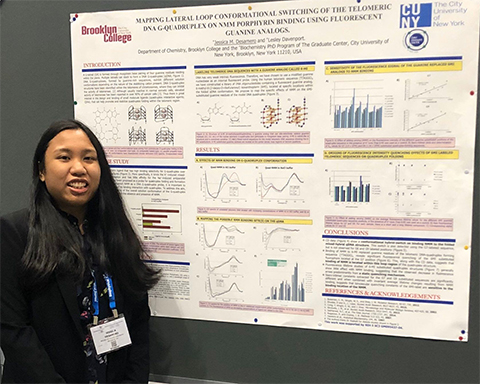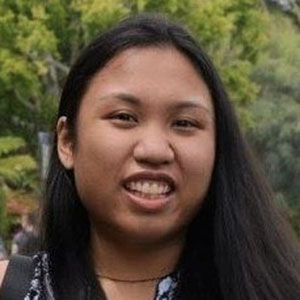
When Batman meets Poison Ivy
Presenting my research to my Ph.D. thesis committee was straightforward. However, explaining my work to an 8th grade-level audience at a general science communication event was challenging. No actual 8th-graders were present, but the audience had very little scientific knowledge.

So, I unleashed my creative, nerdy side: comparing my research to a hero–villain battle. At the time, I studied the role of DNA secondary structure in halting cancer cell growth, which helps prevent further tumor progression. In my talk, I compared the DNA to the superhero Batman and cancer to the villain Poison Ivy. In my imaginary battle, Batman uses his specialty gadgets to stop Poison Ivy and her plants from taking over the city.
I took scicomm to another level, and I enjoyed every minute of it. But I didn’t get to this point overnight.
I got my start in science communication when I was an undergraduate. Stony Brook University had a biannual science journal for undergrads by undergrads about research on campus. I worked on two news pieces.
At this point, writing wasn’t new to me — I already wrote for the arts and entertainment section of the school newspaper — but reporting on topics related to biochemistry merged my love of writing and science, and I instantly felt a connection.
Years later, in my fourth year of grad school, I found volunteer science writing. I started with OncoBites, a blog that reports the latest cancer research in short, bite-sized articles, and then got involved with ASBMB Today. These experiences rekindled and reinforced my love for scientific storytelling.
And I learned scientific translation. I had to write about complex scientific topics in a way that an undergraduate student could understand. This was an art form in and of itself.

In 2023, I presented my research at two scicomm events where most audience members were graduate students in biology and neuroscience. They weren’t familiar with my research or even with biochemistry. I really enjoyed this challenge. To explain my concepts, I created analogies and accompanying simple, easy to follow visuals. In one of my slides, I presented the method behind my research as an origin story, which I laid out in comic book-style panels. I learned that connecting science to something tangible in the real world that people love, like comics, can be a powerful tool.
Another thing I love about scicomm is that it gives me a chance to learn from amazing people.
During a scientific writing internship, I interviewed two cancer survivors who told me about their personal journeys and their advocacy efforts to spread cancer awareness. I was particularly moved by what they said. They encouraged people to be informed and unafraid, shared words of support and reminded people that they are not alone. It was an honor to tell their story.
Scicomm challenges and inspires me, and I truly value it. The more I practice it; the more I love it. Perhaps I’ll meet Batman and Poison Ivy, or another dynamic superhero duo, again during my scicomm journey.
Enjoy reading ASBMB Today?
Become a member to receive the print edition four times a year and the digital edition monthly.
Learn moreFeatured jobs
from the ASBMB career center
Get the latest from ASBMB Today
Enter your email address, and we’ll send you a weekly email with recent articles, interviews and more.
Latest in Careers
Careers highlights or most popular articles

Defining JNKs: Targets for drug discovery
Roger Davis will receive the Bert and Natalie Vallee Award in Biomedical Science at the ASBMB Annual Meeting, March 7–10, just outside of Washington, D.C.

Upcoming opportunities
No matter where you are in your career and what future path you aspire to, everyone needs leadership skills. Join ASBMB for practical strategies for building and practicing leadership skills.

Close out ASBMB 2026 with a bang
The closing reception of the 2026 ASBMB Annual Meeting will be held at the Torpedo Factory Art Center in Alexandra, Virginia.

Redefining lipid biology from droplets to ferroptosis
James Olzmann will receive the ASBMB Avanti Award in Lipids at the ASBMB Annual Meeting, March 7–10, just outside of Washington, D.C.

Creating change in biochemistry education
Pamela Mertz will receive the ASBMB William C. Rose Award for Exemplary Contributions to Education at the ASBMB Annual Meeting, March 7-10 in Washington, D.C.

Trainee mentorship as immortality
Suzanne Barbour will receive the ASBMB Sustained Leadership Award at the ASBMB Annual Meeting, March 7-10 in Washington, D.C.

